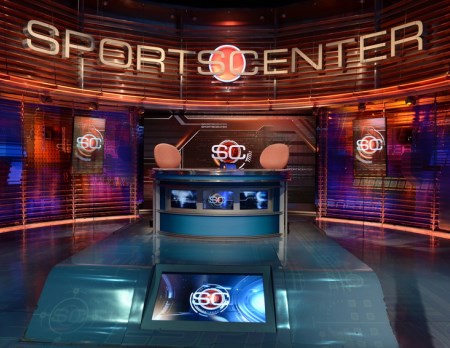Greenfield: 56% of Pay TV Subs Would Drop ESPN
The smarter way to stay on top of the multichannel video marketplace. Sign up below.
You are now subscribed
Your newsletter sign-up was successful

Disney shares slipped in early trading Wednesday after BTIG media analyst Rich Greenfield said a study showed that more than half of its respondents would drop sports network ESPN just to save $8 per month.
Disney shares were down slightly in early trading (less than 1% or 79 cents per share) to $100.67 each.
Greenfield has been one of ESPN’s staunchest critics – he downgraded Disney to “sell” just before the premiere of its blockbuster studio release Star Wars: The Force Awakens – and he continued to turn up the heat on the programmer with this latest survey. Greenfield has said repeatedly that ESPN has paid exorbitant rights fees for sports channels and that because of its fee structure would find it impossible to offer programming direct-to-consumer. While ESPN has said it has no current intention to bypass its existing distribution partners, it has said it could offer a direct-to-consumer product in the next five years.
Greenfield, on the other hand, doesn’t believe it, adding that the sports channel has been feasting on the cable bundle for decades – it is the highest-priced entertainment network at about $7 per subscriber per month – and would find it hard to survive on a smaller revenue diet.
“The price/value of ESPN and ESPN2 is simply too high for a majority of US consumers today,” he wrote in a blog posting.
BTIG hired consumer marketing and intelligence company Civic Science, which surveyed 1,582 consumers last week, 87% of which were multichannel TV subscribers. The survey asked two questions: would consumers drop ESPN and ESPN 2 if they could save $8 per month on their cable bill; and if the channels were only available as a standalone, similar to Netflix, would they pay $20 per month to get them?
According to BTIG, 56% of the respondents said they would drop the channels to save $8 per month (the equivalent of a Netflix subscription), with 60% of women and 49% of men saying they could do without the networks. Only 6% of respondents said they would subscriber to the standalone ESPN networks for $20 per month.
The smarter way to stay on top of the multichannel video marketplace. Sign up below.
That highlights what Greenfield believes is the futility of an ESPN direct-to-consumer [DTC] offering.
“[N]o matter what price point ESPN/ESPN2 launch DTC, it enables their legacy distributors such as Comcast to offer far more robust channel packages without ESPN (currently 80% of their subscriber have to take ESPN),” Greenfield wrote. “ESPN is already struggling with the pain caused by cable packages such as Verizon’s Custom TV; now imagine those type of packages offered to a wider array of consumers. We do not believe ESPN would be able to replace half its subs with a DTC offering.”
